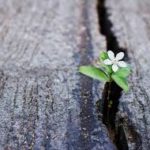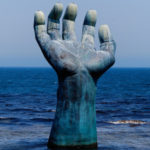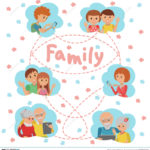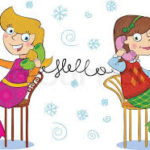Monthly Archives: March 2020
Fear is Part of Grief in Coronavirus Times
 As we navigate through the uncharted terrain of coronavirus days, weeks and perhaps months, most of us are experiencing: fear, confusion, frustration. Things feel surreal. Where do we turn? What do we do? Can we make plans for the future? Not really.
As we navigate through the uncharted terrain of coronavirus days, weeks and perhaps months, most of us are experiencing: fear, confusion, frustration. Things feel surreal. Where do we turn? What do we do? Can we make plans for the future? Not really.
The immediate becomes paramount. How do we buy groceries today and stay safe? For those of us who are health professionals, how do we teach our patients (and ourselves) to adjust to video conferencing and/or phone sessions?
Some of my clients wonder who to let in their homes. “Can my housekeeper still come? Can my nanny still come when I am working from home and need their help taking care of my kids? What about the construction project going on in my kitchen – can the carpenter continue?”
We are all figuring things out day by day, instance by instance. There is no  rule book on how to proceed now. What if you work at a grocery store or your family member does? Do you or they still go in to work? What about paying the bills if there is no paid time off?
rule book on how to proceed now. What if you work at a grocery store or your family member does? Do you or they still go in to work? What about paying the bills if there is no paid time off?
Yesterday a friend sent me a very insightful article from the Harvard Business Review called “That Discomfort You’re Feeling is Grief”, an interview with David Kessler, the world’s foremost expert on grief.
Kessler co-wrote with Elisabeth Kübler-Ross On Grief and Grieving: Finding the Meaning of Grief through the Five Stages of Loss. His new book adds another stage to the process, Finding Meaning: The Sixth Stage of Grief. Kessler also has worked for a decade in a three-hospital system in Los Angeles. He served on their biohazard’s team. … He is the founder of www.grief.com which has over 5 million visits yearly from 167 countries.
Kessler describes the grief we feel over losses in our daily lives, e.g. going to work, sending the kids to school, going out to eat or to movies, not getting to visit our loved ones in nursing homes or hospitals. (Look at Amy Klobuchar who just gave a poignant interview about not being able to visit her husband who has been hospitalized with COVID19!) Kessler says:
We feel the world has changed, and it has. We know this is temporary, but it doesn’t feel that way, and we realize things will be different. Just as going to the airport is forever different from how it was before 9/11, things will change and this is the point at which they changed. The loss of normalcy; the fear of economic toll; the loss of connection. This is hitting us and we’re grieving. Collectively. We are not used to this kind of collective grief in the air.
Kessler goes an illuminating step further – he teaches that we are also experiencing “anticipatory grief“.
Anticipatory grief is that feeling we get about what the future holds when we’re uncertain. Usually it centers on death. We feel it when someone gets a dire diagnosis or when we have the normal thought that we’ll lose a parent someday. Anticipatory grief is also more broadly imagined futures. There is a storm coming. There’s something bad out there. With a virus, this kind of grief is so confusing for people. Our primitive mind knows something bad is happening, but you can’t see it. This breaks our sense of safety. We’re feeling that loss of safety. I don’t think we’ve collectively lost our sense of general safety like this. Individually or as smaller groups, people have felt this. But all together, this is new. We are grieving on a micro and a macro level.
 What to do about these feelings? Kessler recommends being aware of them. Remembering that this is a collective experience – you are not alone in what you are feeling. And, he talks about tools such as I wrote about in my last blog post: being present, letting go, finding perspective, helping others… He ends the interview with a very helpful reminder based on his experience: “This too shall pass.”
What to do about these feelings? Kessler recommends being aware of them. Remembering that this is a collective experience – you are not alone in what you are feeling. And, he talks about tools such as I wrote about in my last blog post: being present, letting go, finding perspective, helping others… He ends the interview with a very helpful reminder based on his experience: “This too shall pass.”
This is a temporary state. It helps to say it. I worked for 10 years in the hospital system. I’ve been trained for situations like this. I’ve also studied the 1918 flu pandemic. The precautions we’re taking are the right ones. History tells us that. This is survivable. We will survive. This is a time to overprotect but not overreact.
Much appreciation to David!
A Recipe for Personal Agency in the Time of Covid19
 A Recipe for Personal Agency in the Time of Covid19
A Recipe for Personal Agency in the Time of Covid19
In talking with clients *on the phone or through videoconferencing* this week – which will probably extend into the future for some weeks – how we are grappling with sheltering in place and the constant drum beat in the news is on everybody’s minds.
Feeling powerless and fearful is a widespread, and understandable, reaction. Human beings have never been exposed to such a constantly reported on global pandemic. The spread of the virus is bad enough. The constant descriptions on tv and online, though we need the news, can really exacerbate people’s stress.
What are some ingredients for feeling calmer and more grounded at this time? What can help us feel like we have a sense of Personal Agency? By “Personal Agency”, here I mean the “ability to choose to act in ways that help oneself feel better”.
 Here are some of the ingredients my clients and I have come up so far:
Here are some of the ingredients my clients and I have come up so far:
Number One: Stay Connected. Look at what you can’t do right now and figure out other ways to do things. You can’t get together face to face with groups of two or more. That is the latest instructions. However, you can get together on the telephone. And online through various videoconferencing tools, e.g. FaceTime, Zoom, Skype, FaceBook Messenger, Google Hangouts and more. For FaceTime, you have to have an iPhone. For Google Hangouts, you don’t have to have a gmail account – any email account is fine. Obviously for FaceBook Messenger, you have to have a FaceBook account.
Socially isolating is NOT a healthy thing to do at any time for most people. It is especially not a good thing to do right now. Use the social media tools we are fortunate to have nowadays and talk with your family members, friends, church groups, book clubs, meditation groups, support groups and more. All of the therapists I know are continuing their practices full force, just doing them online or through the phone.
This takes some experimenting with tools, particularly for those who have not been using them. But everybody I know of who is hosting an interaction this way is more than willing to help people get up and running and experiment with them. And thank goodness, we always have the telephone!
 Grandparents are reading to grandkids this way. People are dating this way. People are having small parties this way. Be creative! And don’t let the newness and strangeness of using these tools stop you! Many people are helping each out with them now. That is wonderful to see.
Grandparents are reading to grandkids this way. People are dating this way. People are having small parties this way. Be creative! And don’t let the newness and strangeness of using these tools stop you! Many people are helping each out with them now. That is wonderful to see.
Number two: Try to maintain some perspective. It’s not just you who is grappling with facing these changes, your fears, your boredom, your loneliness, your stress about how to teach your kids while working from home, your grief about losing your jobs, your disruption to your routines.
Masses of people are feeling this way. We have not faced a global pandemic of this magnitude before, nor one that is being televised so incessantly.
Monitor your exposure to the news if you start to feel like you especially can’t sleep due to stress and fears. Perhaps read the news to stay up on events and announcements but limit hearing or watching the pundits or politicians. Voices can amplify, through those stimuli, your reactions your visceral and emotional reactions.
Look for the instances you see or read about where people are helping each other out. Spend some time feeling gratitude for those examples, and examples you are experiencing in your own personal surroundings. For instance, I notice when I am outside walking near my home, that we are all staying a good 6 feet away from each other, and giving each other a thumb’s up sign or a kind smile. This has not always been the case in my community where people tend to stay in their own bubble. So that is a good change I’m noticing. Small but important to me.
We are all in this together. Life has changed. It’s likely we will never be the same. We need to be better prepared for similar events in the future. I think we will be! This is a huge wake up call!
 Number Three: Help someone else. When you start to feel dragged down and depressed, get dressed, think of something you can do to help someone else. Call a friend. Particularly someone you suspect would appreciate a check-in or caring phone call. Send an email or a text. Post something positive that makes you smile. Nature is still happening. Spring flowers are blooming. Pets are still doing cute things. Kids still crack us up and make us smile.
Number Three: Help someone else. When you start to feel dragged down and depressed, get dressed, think of something you can do to help someone else. Call a friend. Particularly someone you suspect would appreciate a check-in or caring phone call. Send an email or a text. Post something positive that makes you smile. Nature is still happening. Spring flowers are blooming. Pets are still doing cute things. Kids still crack us up and make us smile.
Helping someone else – maybe you can volunteer with a group online – is one of the most effective ways for helping our own selves feel we have personal agency – we can make a difference in our own state of mind through contributing kindness to someone else!
Number Four: See if you can get in touch with the “Watcher” in yourself. Notice, for example, when you are starting to feel stressed or down or anxious or fearful. Don’t criticize yourself for having normal human reactions! This goes with the territory of what we are experiencing and you are not alone in these feelings! Just notice them, talk to yourself – say I see you are feeling this, let’s just take some deep breaths, or read something interesting or do some art, or take a walk (staying 6 feet apart) or play some music. My longtime counselor friend calls this “Creative Distraction”. Let yourself off the hook – if you don’t feel like studying something, then read something purely entertaining. Try baking some bread at home. Take naps. Lift some weights. Play board games or cards. Do crossword puzzles. Work in your garden.
Straighten up your linen closet. (I did this yesterday and it looks great! 🙂 ).
Notice how you are feeling, in your mind and in your body. Breathe yourself through it if you are feeling tight. Listen to uplifting video or podcasts. Remind yourself, you are still here, you are still loved, you are not alone, we are in this together.
I’ll be writing more as we go along. In the meantime, shelter in place as best you can. And be kind to yourself.
Older Women Take the Lead
 One of my favorite anti-ageism stories comes from anthropologist Margaret Mead who described the key role played by the “old does” of the red tailed deer herds in Alaska in ensuring the herd’s survival. The old does take the lead in perilous times for the herds. We are now seeing growing numbers of women, including many older women, take the lead as our own human species survival is so critically at risk.
One of my favorite anti-ageism stories comes from anthropologist Margaret Mead who described the key role played by the “old does” of the red tailed deer herds in Alaska in ensuring the herd’s survival. The old does take the lead in perilous times for the herds. We are now seeing growing numbers of women, including many older women, take the lead as our own human species survival is so critically at risk.
Below are two quotes from authors who heard Margaret tell her story many years ago. It is more relevant than ever in today’s times.
 First, from Joan Erikson, in her book Wisdom and the Senses:
First, from Joan Erikson, in her book Wisdom and the Senses:
“In the fifties when we worked in Stockbridge, we attended a lecture presented by Margaret Mead to a small audience of psychiatrists and guests. Her topic was the role of postmenopausal red-tailed deer which, she said, had been observed in the far north. In their old age, when all the old bucks had been killed off in contentious fighting over priorities and in territorial skirmishes, the females became the oldest survivors.
In time of drought, these old does could remember where once long ago under similar circumstances water sources had been found. When spring came late, they recalled sunny slopes where the snows melted early. They knew how to find sheltered places where blizzards could be waited out.
Under such circumstances, they took over the leadership of the herd. Old age, she postulated, has a unique contribution to make when well-stored, long experience and practical knowledge, fortitude, and hope are required. Women throughout time have practiced and nurtured these skills for community living and they serve ongoing species survival.”
And from Robert L Weber and Orsborn, The Spirituality of Age:
“What is the value of aging, to ourselves and to society? Let’s begin with a story about the value of aging to society. In the 1950’s anthropologist Margaret Mead delivered a memorable lecture that has relevance to our consideration. Her discussion centered on the role of postmenopausal red-tailed deer in their herd.
From the outside these old does appeared to have no value. Their male counterparts, charged with protection of the herd, had all been killed off over the years. It would be natural to think of the elderly who remained as burdens to the herd. But this was not the case.
Mead goes on: ‘In time of drought, these old does could remember where once, long ago, under similar circumstances, water sources had been found. When spring came late, they recalled sunny slopes where the snows melted early. They knew how to find shelter, places where blizzards could be waited out. Under such circumstances, they took over the leadership of the herd.’
Margaret’s story goes straight to the heart of the question at hand, standing in stark contrast to contemporary society: a culture that still tends to think of aging as a problem, marginalizing, ignoring, and even reviling the elderly. But just as the old does knew where to find sunlight, we who are growing old have knowledge and wisdom to share with others, inner reserves of resources upon which to call that are often dismissed too readily by those who would benefit the most.”